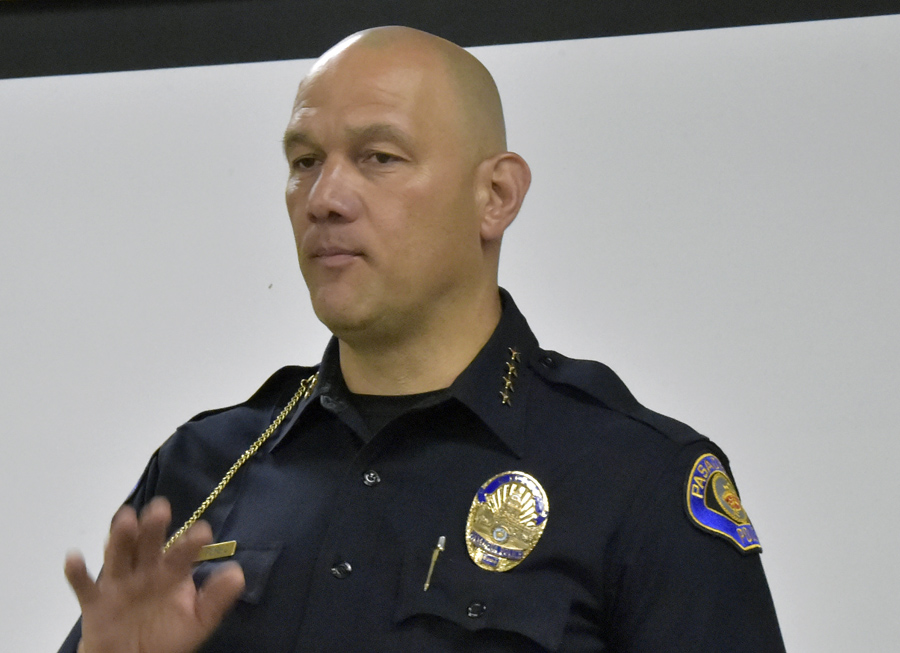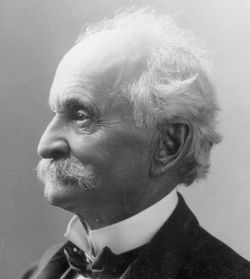
By Malak Habbak
Arcadia City Council denied Verizon Wireless’ proposed wireless tower facility in a residential area Tuesday, Feb. 7, after the carrier failed to persuade the council that the facility had an immediate need and was the best alternative. The decision was a relief to concerned residents spearheaded by Arcadians Against Residential Towers in their battle with Verizon, nicknamed “David vs. Goliath,” that lasted over a year.
Over 20 residents spoke against the tower during public comments, citing reasons for denial from health and safety to aesthetics and bad feng shui. The group, young and old, dressed in green shirts for solidarity with yellow signs, flooded the council’s chambers in opposition to the proposal that would open the gates to telecommunications carriers in residential zones, currently prohibited by municipal code.
Under federal preemption, the city would be required to grant Verizon’s request if it could prove a significant gap in coverage and that their plan is the least intrusive, given proper alternatives were analyzed.
“When it comes down to everything, you just have to go with your gut as to what the right thing is,” said Mayor Tom Beck, who along with councilmembers Sho Tay, April Verlatto and Peter Amundson declared that Verizon did not meet its burden of proof.
Beck was open to the alternative of 10 small cells, detailed in Verizon reports, but the idea was quelled by Verizon attorney Paul Albritton and city consultant Douglas Dickinson (paid by Verizon) from CommVergent Technologies, who argued small cells would “sacrifice the ability to serve a large number of people” that would get covered by the 53-foot macro site. Dickinson further stated the small sites would be more intrusive than the tower, disguised as a bell tower at the Church of the Transfiguration, and that about 25-30 small cells were in fact needed as an alternative.
“Quite frankly, I think they made a good argument as much as they possibly could,” said councilmember Roger Chandler, who was outnumbered 4-1 in opposition of the proposition. “We have a law to deal with and we’re running on the edge.”
Verizon’s gap in coverage claims were rooted in Long Term Evolution (LTE), a form of high-speed wireless network primarily used for data streaming.
“We do not have 4G, AWS, LTE coverage in this area right now,” said Albritton, referencing to the highest frequency used by the carrier. With fifth generation wireless services around the corner, Verizon would require more “close-knit facilities” to provide coverage and capacity, he said.
The Telecommunications Act of 1996, which ultimately supersedes municipal law, was used as leverage by the carrier and supported by city attorney Gail Karish, who said the law protects multiple services in the mobile broadband.
Yet Verlatto found it hard to believe the federal act considers “my son’s gaming” as a public safety concern.
“I don’t think that’s what the overall goal of these ordinances and the federal government was supposed to be— that they get to come in to put in towers wherever they feel like they need to upgrade their services.”
The decades old act also trumps any health-related concerns that were brought before council based on “inconclusive evidence”. The planning commission denied the project twice, with the initial proposal to disguise the tower as a eucalyptus tree.
Reverend Julie D. Bryant, the landlord of the proposed bell tower at the Church of the Transfiguration, amid the public’s concerns, believed the tower would blend with the existing church. The tower would also fit with the organization’s mission and purpose, she said, while income from Verizon’s lease would help support the church’s programs.
“The well-being, health and safety of our members, pre-school students, staff and neighbors is a tremendous concern for us as a community,” she said. After being contacted by Verizon for use of the property, she said the parish and the Episcopal Diocese of Los Angeles that governs them did not proceed “until we had been satisfied first.”
She believed the tower would not be unique in that similar types of wireless facilities dwell close to schools (including Dana Middle School and Camino Grove Elementary) and homes in Arcadia, an argument raised at city council and confirmed by Arcadia Community Development Administrator Jim Kasama.
Bryant even argued she had a “great interest” with its aesthetics of the bell tower, which would have been planned to blend with the existing church, as an aesthetic asset for a “Spanish revival.”
Some neighbors of the church, including Marian Bachmeier, protested the aesthetics and cited the 9th circuit court case Sprint vs. Palos Verdes Estates for legitimate reasons to base the denial. Ken Obst called the tower a “monstrosity” and demanded the city preserve Arcadia’s single-story, post-war bedroom community identity.
“It’s a very sensitive issue for my wife and I,” said Obst, who lives across the street from the church. “It’s an ugly intrusion into our neighborhood and I have a question for each of you: If Verizon were to build a tower across the street from where you live, would you have a problem?”
Beck also had a problem with the location and aesthetics. “It’s going to stick out,” he said. “This is a close call but I am coming down on the side that there’s a viable alternative to this bell tower and that Verizon should pursue that.”
City council will complete a resolution on Feb. 21 with findings based on fact to deny the Verizon application and appeal, yet Verizon could sue the city on federal preemption.




